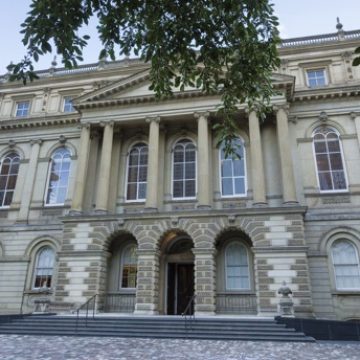At the Roundtable of Diversity Associations (RODA), we represent a coalition of 20 equity-seeking Canadian legal associations. Our goal is to foster dialogue and promote initiatives relating to the advancement of equity. And our broader mandate is to provide input on policy developments within the profession and the legal system.
At the moment, we’re bracing for a major vote at the Law Society of Ontario. Two motions have been tabled for the next sitting of Convocation, which is scheduled to take place on June 27. Both centre on the statement of principles, the new requirement that all lawyers in the province must confirm, in their annual report, that they’ve written a personal statement that acknowledges their obligation to promote diversity and inclusion. One motion would repeal the new requirement; the second would make it voluntary.
We understand the position taken by some that the statement of principles is compelled speech. We strongly disagree with that position, but the arguments around this subject have already been made elsewhere. If there is further discussion to be had on this topic, our regulator must understand that members of historically disadvantaged/equity-seeking groups would see the repeal of the statement of principles as a betrayal and reneging on its commitment to equity, diversity and inclusion.
Let’s review how we got to where we are today. Back in September 2011, the Law Society first identified the enhancement of diversity within law firms as a priority. It launched a working group. And over the next five years, considerable research and resources were dedicated to this subject. At all stages of this consultation process, the Law Society sought input from the profession and members of the public. It also reached out to equity-seeking groups, the Ontario Bar Association and other legal associations across Ontario.
When the Law Society released a final report on this subject, titled the Challenges Faced by Racialized Licensees, it was the end result of many years of consultations and consensus building. That historic report included 13 recommendations. The statement of principles was only a portion of one of those recommendations.
When the report was released, RODA joined with other allied associations in asking that Convocation adopt the recommendations on an omnibus basis. After much debate and discourse, all stakeholders agreed that, to be meaningful, it was essential that all recommendations be voted on as a package. And in December 2016, the benchers of the Law Society unanimously consented to implement every recommendation outlined in the report. For the first time in its history, our regulator was taking concrete steps to address the problem of race-based systemic discrimination in our profession.
Now, after decades of working toward a consensus position, that hard work is threatened. The current slate of benchers must understand the impact of their decision on June 27. In short: they risk wiping out two decades of hard work by multiple stakeholders in the profession and throughout broader Ontario society. To repeal the statement of principles would constitute a major rollback of progress, and it would raise serious questions about the efficacy of our regulator.
This is not a time for fracturing or regression. We have our work plan laid out in front of us and there is much work to be done.
Dina Awad is the chair of the Roundtable of Diversity Associations (RODA). Adrian Ishak is the vice-chair of RODA. Jayashree Goswami is the immediate past chair of RODA. Lai-King Hum is the past chair of RODA. Miriam Young is the founding chair of RODA.
The Roundtable of Diversity Associations includes the following member associations: The Arab Canadian Lawyers’ Association, the Association of Chinese Canadian Lawyers of Ontario, the Canadian Association of Black Lawyers, the Canadian Association of Muslim Women in Law, the Canadian Association of Somali Lawyers, the Canadian Association of South Asian Lawyers, the Canadian Hispanic Bar Association, the Canadian Italian Advocates Organization, the Canadian Muslim Lawyers Association, the Federation of Asian Canadian Lawyers, the Hellenic Canadian Lawyers Association, the Indigenous Bar Association, the Iranian Canadian Legal Professionals, the Korean Canadian Lawyers Association, the Macedonian Canadian Lawyers Association, the OBA Sexual Orientation and Gender Identity Law Section, the OBA Equality Committee, the South Asian Bar Association, the Toronto Lawyers Association and the Women’s Law Association of Ontario.


